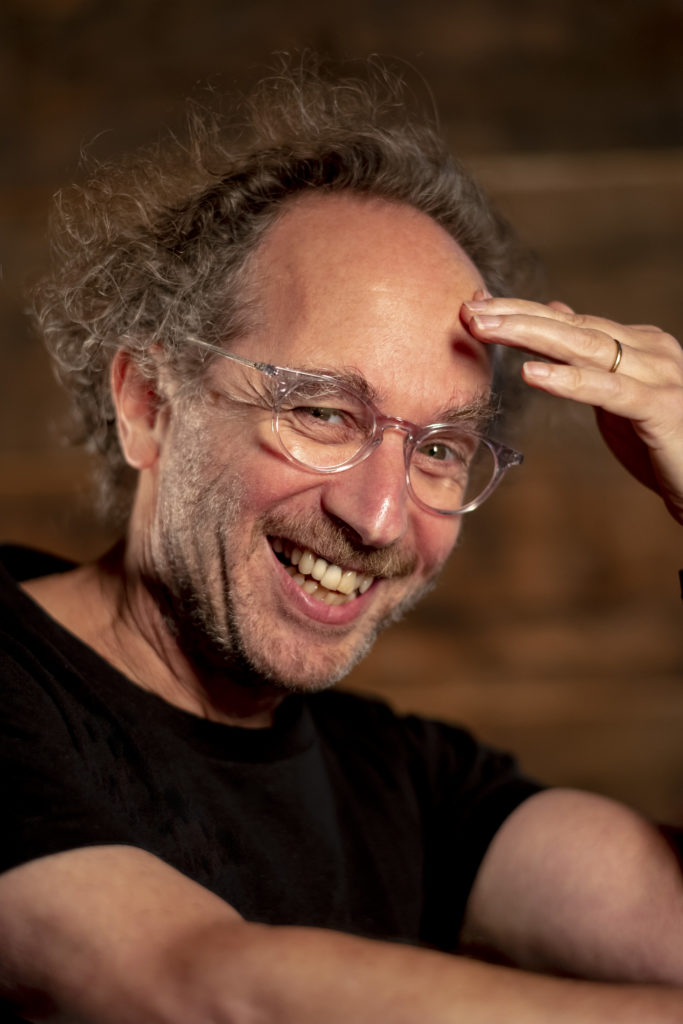
Sorta Voce (2020)
from the composer
Sorta Voce was composed in early 2021, at the request of Matt Haimovitz – with whom I have collaborated over many years – and in response to both Botticelli’s Primavera (a painting that I visited very often when living for a year in Florence, Italy at the beginning of my career, quite a while ago) as well as Charline von Heyl’s reinterpretation of that painting. I was interested in exploring the different forms of breath – from sustaining to destructive – that seem to animate those works, as well as to hint at the mystery and diversity that underlie what can appear at first to be purely celebratory and life-affirming images. In addition, I have always been inspired by the simultaneous stasis and rippling movement that Botticelli so singularly achieves, and I have sought to translate a bit of that rare sensation into sound. Sorta Voce is for unamplified acoustic cello (like another, very early, cello piece of mine – With Dadaji in Paradise – that Matt has recorded on the Oxingale label), and is mostly to be played very softly and rapidly, almost at the limit of perception. Swooping and gliding throughout the cello range in a way that is meant (and does in Matt’s performance) to sound both virtuosic and effortless, the piece is often on the verge of revealing a simple, haunting melody that ties the music together and is heard in entirety only near the end. In exposing both the power and the ambiguity of breath, Sorta Voce explores the will to persist, the longing for rebirth after tough times, and the acceptance of life’s constant ebb-and-flow. In addition to the version heard on this recording, I also created a second version of the work which invites the cellist to add a wide range of mostly very quiet vocal sounds to the instrumental playing, from long exhales and inhales, to somewhat manic whispering, to timbral drones. These vocal punctuations appear infrequently but at key moments of the piece’s progression, emphasizing the relationship between body and instrument, and underlining the microcosmic life-cycle that is represented in this brief but – hopefully – evocative work.
bio
Tod Machover has been called a “musical visionary” by The New York Times and “America’s most wired composer” by The Los Angeles Times. Machover is the Muriel R. Cooper Professor of Music and Media at the MIT Media Lab, where he is also Academic Head and directs the Opera of the Future Group. His compositions have been commissioned and performed by many of the world’s most prestigious ensembles and soloists, and he has been awarded numerous prizes and honors such as being named Musical America’s Composer of the Year as well as a Chevalier des Arts et Lettres from the French Culture Ministry. Machover is particularly known for his groundbreaking operas, including the audience-interactive Brain Opera and the “robotic” Death and the Powers. He is also recognized for designing new technologies for music, such as Hyperinstruments, “smart” performance systems that extend expression for virtuosi, from Yo-Yo Ma to Prince, and also for the general public. The popular video game Guitar Hero grew out of his Lab, and his Hyperscore software is used throughout the world to teach music composition and creativity to young people. Machover’s City Symphony projects “have reinvented the symphony as a community event” (Mark Swed, Musical America), and travel next to India, the Koreas, and throughout the U.S. Machover is also devoted to discovering theories, techniques and tones that allow music to promote wellbeing and combat disease, from Alzheimer’s to depression to a variety of COVID-related conditions, as exemplified in his recent Gammified for the Kronos Quartet, and VocaGammified for soprano Renée Fleming.
